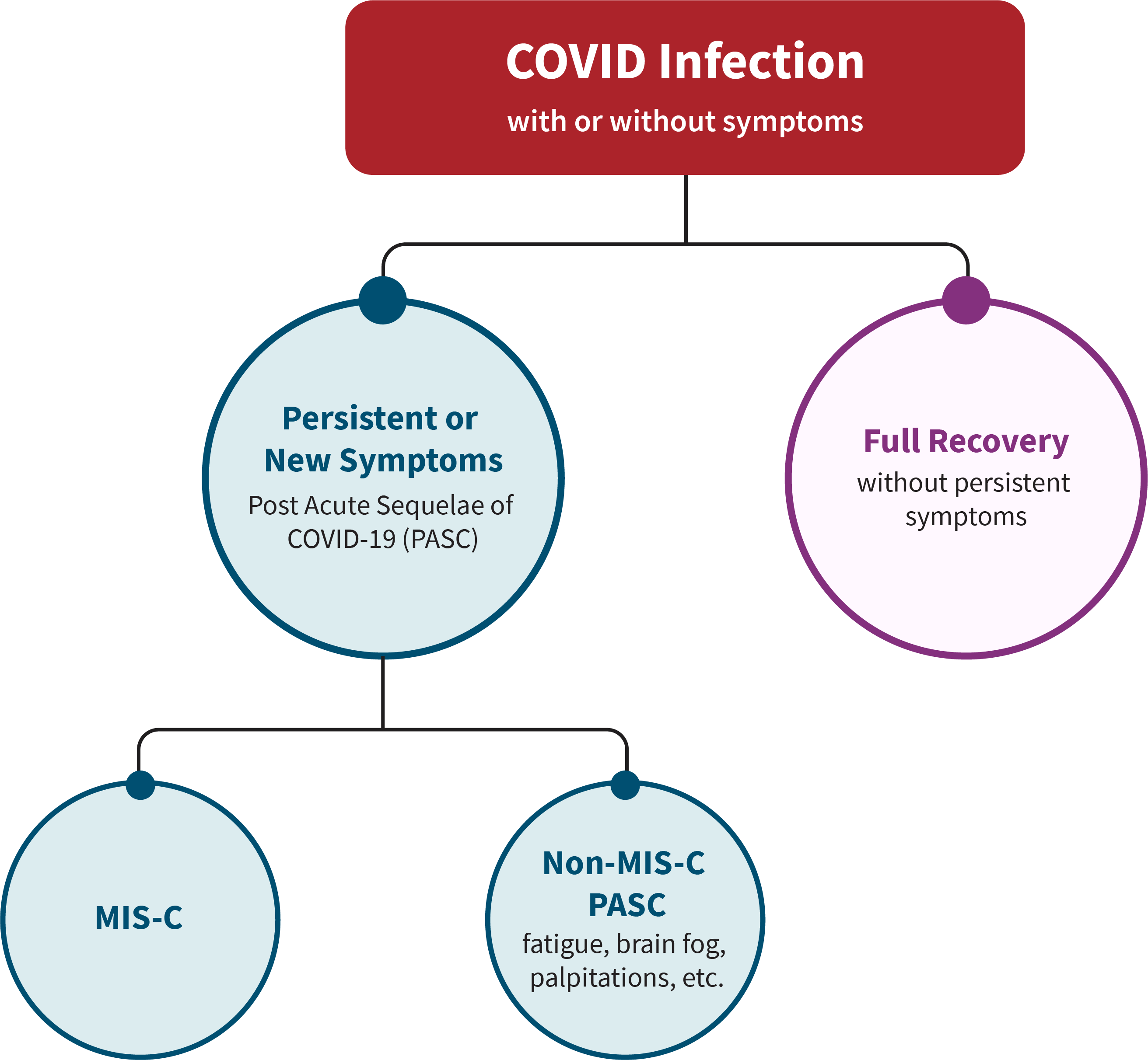Information about MIS-C
There is much to be learned about MIS-C and how it affects children. For instance, it is not known why some children get MIS-C while others do not. We currently have limited information on why some children with MIS-C become more sick than others, or factors that might increase the risk of becoming more sick or more organ involvement. This is what the COVID MUSIC Study and other research on MIS-C want to understand. This website is not intended to provide medical or clinical guidance. For up to date information please refer to the CDC website. The Centers for Disease Control is continually updating information on MIS-C based on the most current evidence and data.
Children with MIS-C may have a fever and various symptoms, including abdominal (gut) pain, vomiting, diarrhea, neck pain, rash, bloodshot eyes, or feeling very tired. They may also be very sick with low blood pressure or poor heart function. We do not yet know what causes MIS-C. However, all children with MIS-C had SARS-CoV-2, the virus that causes COVID-19, even though some children did not feel sick when they had this. MIS-C results from the body’s immune reaction against SARS-CoV-2.
MIS-C and Kawasaki Disease
Kawasaki disease is an acute illness that mainly affects children under 5 years old. Children with Kawasaki disease can develop a prolonged fever lasting several days, a rash, and swollen lymph nodes in the neck. Other symptoms can include redness in the whites of the eyes and redness of the lips, lining of the mouth, tongue, palms of the hands, and soles of the feet. Because the symptoms of Kawasaki disease and MIS-C can look very similar, they are sometimes hard to distinguish based on physical examination alone. Therefore, scientists are studying the differences between the two conditions. The COVID MUSIC Study is collaborating with researchers in the Pediatric Heart Network to use data and knowledge gained from prior research on Kawasaki Disease to help further our understanding of MIS-C.
MIS-C and PASC
Although children generally have a lower risk of symptomatic COVID-19 infection, questions remain about the short- and long-term impact of the virus in this age group. As the pandemic evolves, researchers have identified a series of conditions which persist for some patients following COVID-19 exposure or infection. These conditions have been classified as post-acute sequelae, or PASC for short. Multisystem inflammatory syndrome, or MIS-C, is a condition which occurs in children who have COVID-19 exposure, infection, or antibodies. It is characterized as an inflammatory condition which affects multiple organs. There are other conditions that persist after COVID-19 infection which are not part of the MIS-C diagnosis, and which are being studied and further defined.

